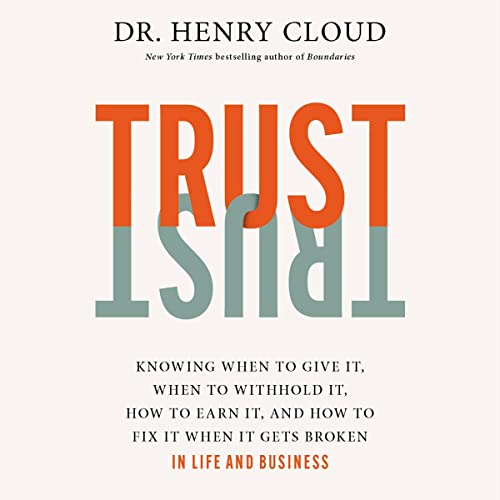 Are all boundary invaders created equal?
Are all boundary invaders created equal?
Absolutely not!
We’ve been talking a lot this month about healthy boundaries, unhealthy boundaries, and boundary recovery. Why is there a need for recovery? Because at some point–or several points–your boundaries were invaded.
Degrees of Boundary Invaders
To be honest, the major boundary busters–often dubbed “abusers”–are the easiest to spot (especially in someone else’s life.)
Harder to detect are those “minor” boundary invaders who look quite normal. Hardest to detect of all are the abusers who masquerade as the “good guys” and “great gals” of this world, but who are wolves in sheep’s clothing.
Different Invaders, Different Solutions
Depending on the type of boundary buster(s) in your life, you will need different solutions. While the basic anatomy of a boundary is the same for each type, the actual line you must draw (and consequences you enforce) will vary considerably.
Types of boundary busters will go from one end of the spectrum to the other. On the “easy” end, you have people who infringe on your time or mental space without intending to and without realizing they do it. With this type of person, a simple boundary works. You might only need to say, “When I am at my writing desk–even if I’m staring out the window thinking–please don’t ask me questions or talk to me unless there is a real emergency. When my train of thought gets interrupted, I have to start over, or I lose it altogether. I’m not trying to be rude–I just need to think without interruption when I’m writing.”
This type of invader doesn’t take offense and is glad to oblige you. They didn’t intend to disrupt your writing. They are what is known as “boundary lovers.”
Assume the best in the beginning. Assume when you set a boundary that you are dealing with a boundary lover who isn’t being invasive on purpose. Give them the benefit of the doubt.
Trust me. You will know very soon by their reaction if you have a boundary lover there–or not.
The “Other” Kinds
The world would be a much easier place if everyone you encountered–both at home and in public–were boundary lovers.
They’re not.
There are a number of degrees of boundary busters. Some will dislike your boundaries and be angry about them. Others will try to make you change your mind–or else. Some will decide to make you pay if you enforce boundaries. Some will try to make you pay BIG TIME if you try to reclaim your own thoughts, feelings, time, personal decisions, and calling.
Disgruntled people who don’t like your boundaries may pout, whine, yell, or stomp around, depending on their (emotional) age. If you’re quietly persistent in enforcing your boundaries, most of them adjust to the new normal.
Boundary haters who are used to having a very high degree of control over you will exhibit all kinds of nasty behavior. So will those whose emotional security is based on having all your attention. (These people can look like arrogant bullies or soft-spoken people who cry easily.)
Here are some things I have seen either personally or dealt with in student situations.
- A woman who had saved money for her first writing conference had it stolen by her spouse so she couldn’t go. [I loved her response though. She promptly applied for a scholarship, won it, and went.]
- One student years ago (who was writing songs and a picture book, which he only worked on three times a week) had his wife threaten to gain weight if he didn’t give up the writing and spend that time with her. He kept writing, and she gained fifty pounds, informing him of every ten-pound gain.
- One woman decided to write for an hour after her children went to school, putting off her daily visit next door to her elderly father for just an hour. He gave her the “after all I’ve done for you” speech and then threatened to cut her out of his will. She persisted in writing first, and to my knowledge, he never followed through.
- One friend was dropped by another friend when she asked to change the time of their garage sale/coffee get-togethers so she could write. The friend wouldn’t change at all and found someone else to hang out with, cutting the writer out of her life.
Thankfully these are extreme situations, but they happen.
You’re Not Alone
Some writers and writers-to-be are in close relationships with emotional blackmailers, passive-aggressive people, narcissists, and verbal abusers. They are difficult–but not impossible–to set and enforce boundaries with. I say that because I’ve done it.
I cover these issues in my chapter on severe boundary busters in my upcoming “Boundaries for Writers” e-book. I’m glad there are many additional books on these specific types of boundary invaders, and I include them in the “Resources” chapter.
Don’t let this post scare you. Let it encourage you instead, in case you suspect you have one or more people in your life who may react badly to a boundary. Most of us have at least one within the family, in our extended family, or within our friendships.
Do you think you might have one in your life? If so, leave a comment! [You don’t need to reveal specifics.]
 If you have experienced betrayal as an adult, or abuse as a child, trust is a big, scary deal. You are a rare person if, in today’s world, you don’t have trust issues.
If you have experienced betrayal as an adult, or abuse as a child, trust is a big, scary deal. You are a rare person if, in today’s world, you don’t have trust issues.









